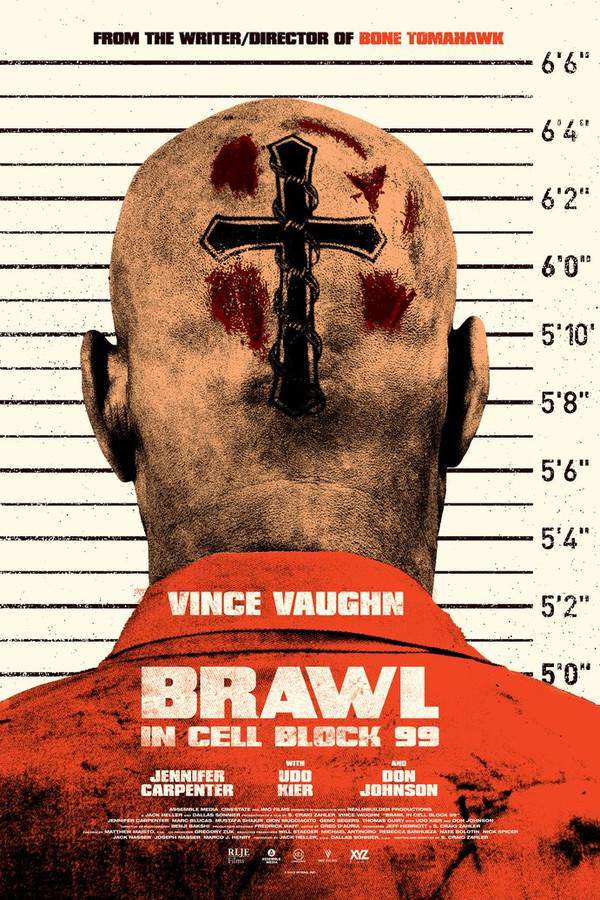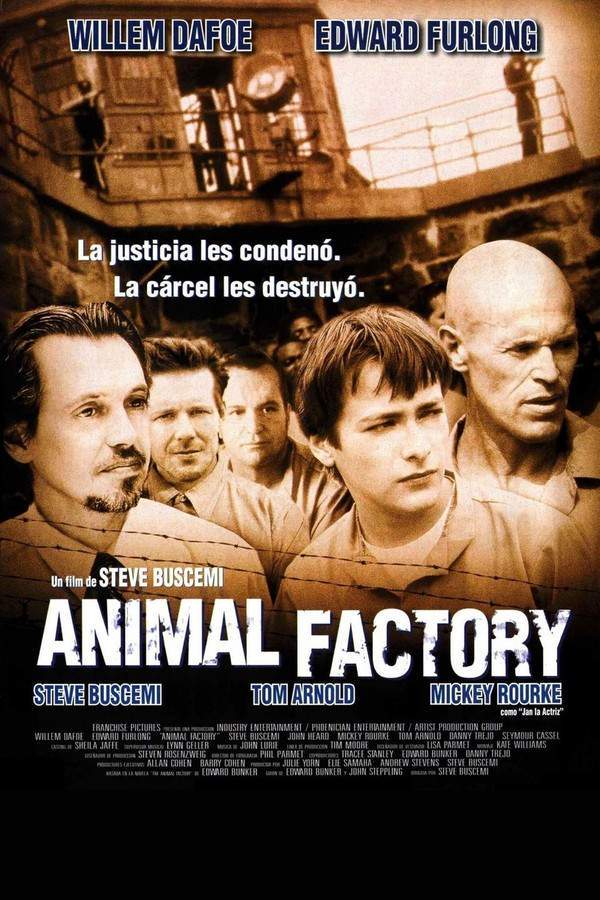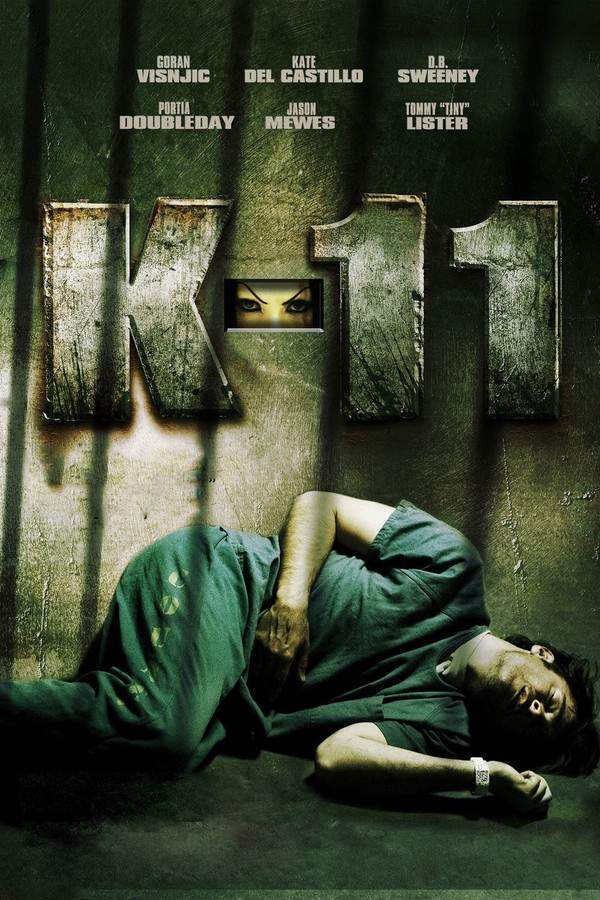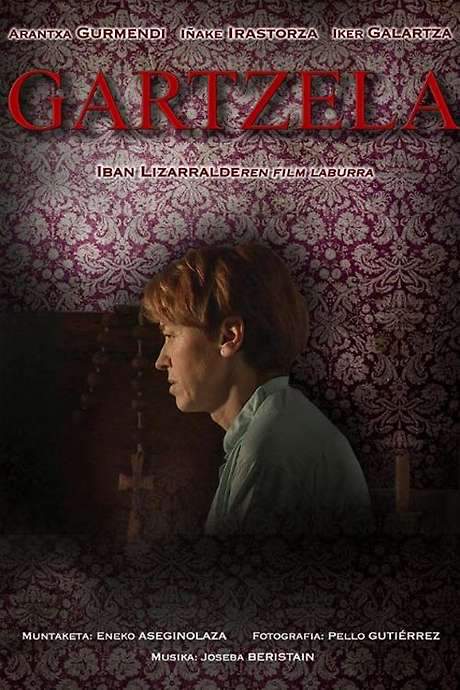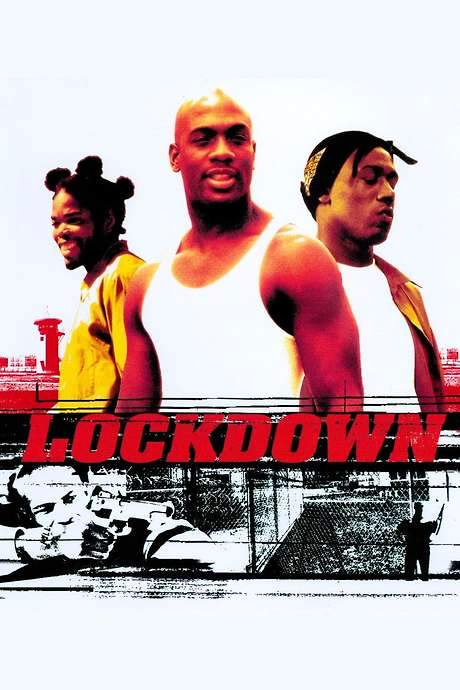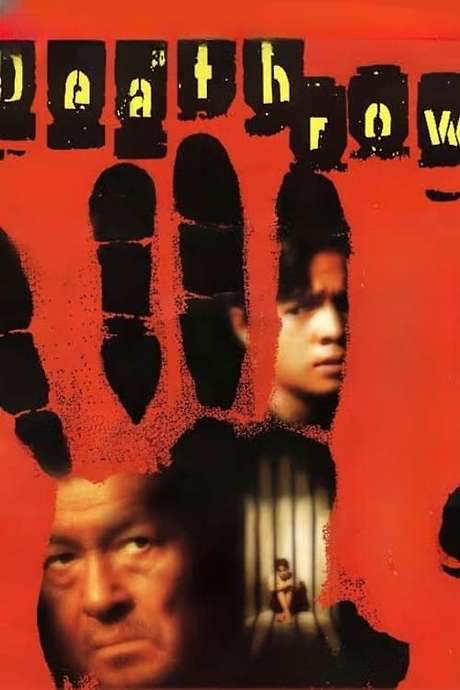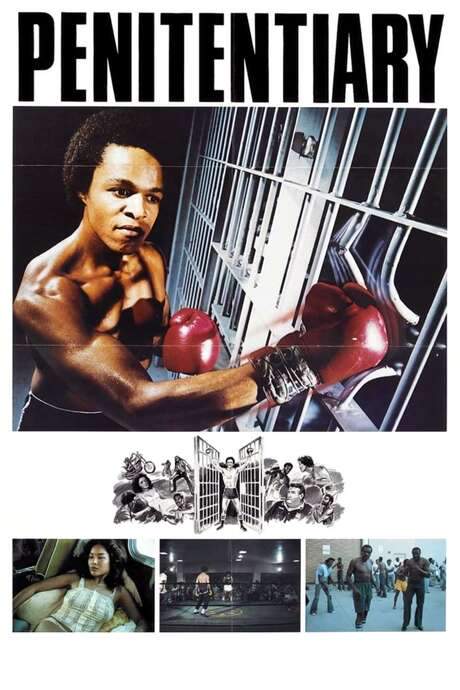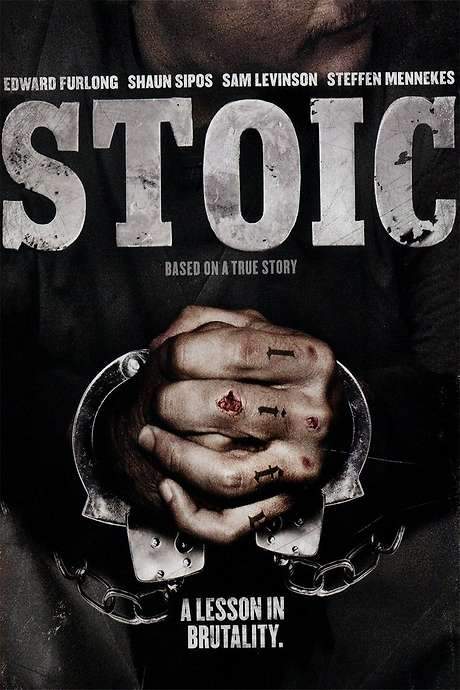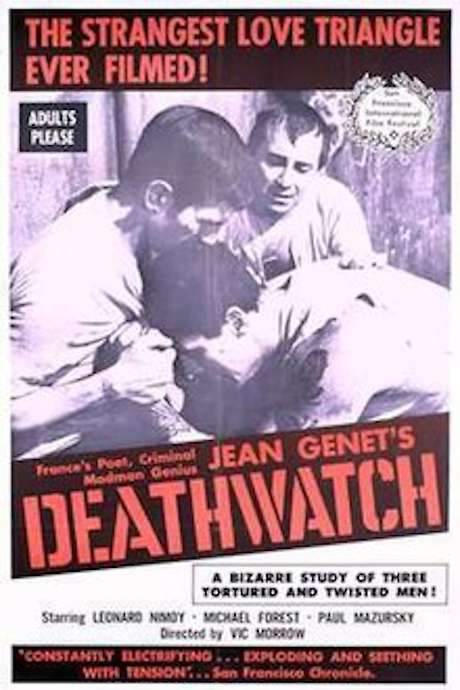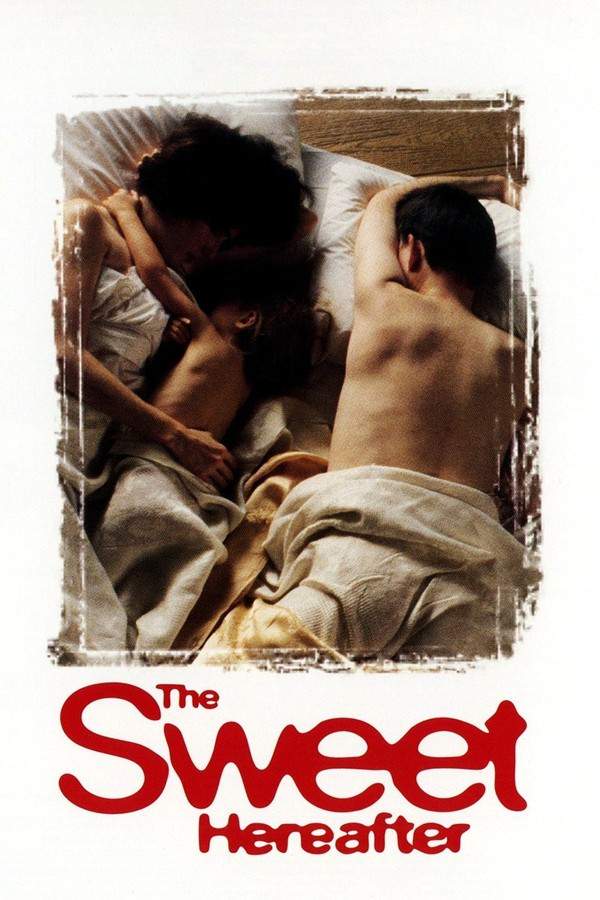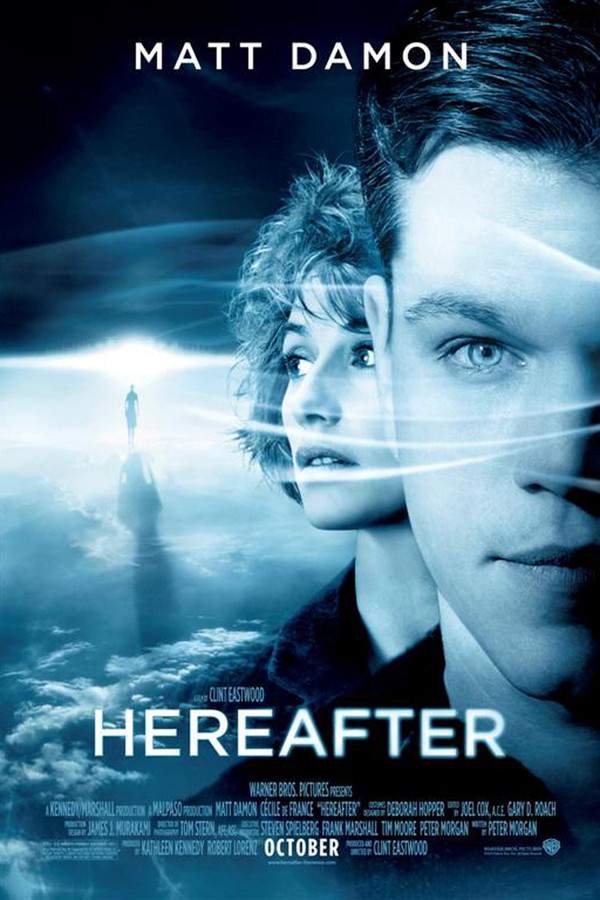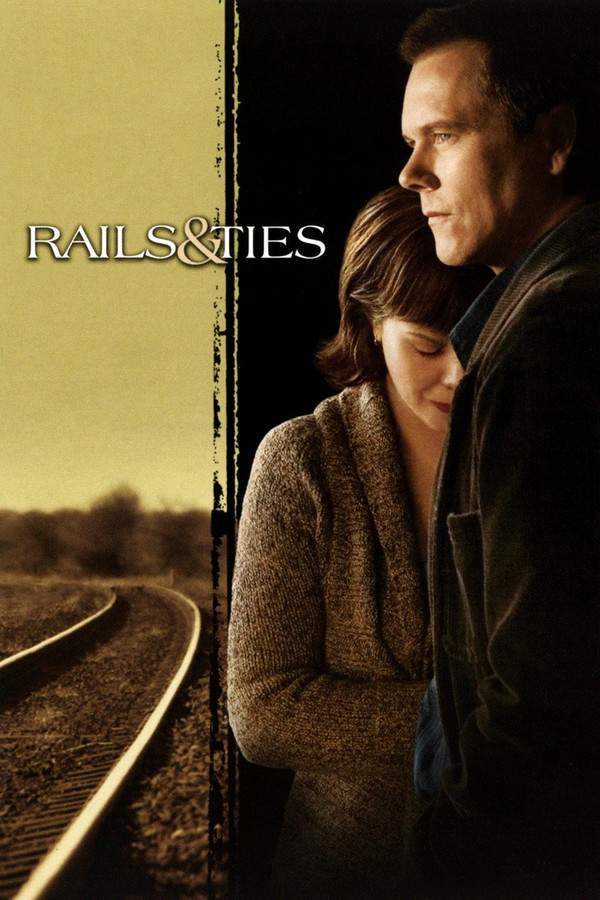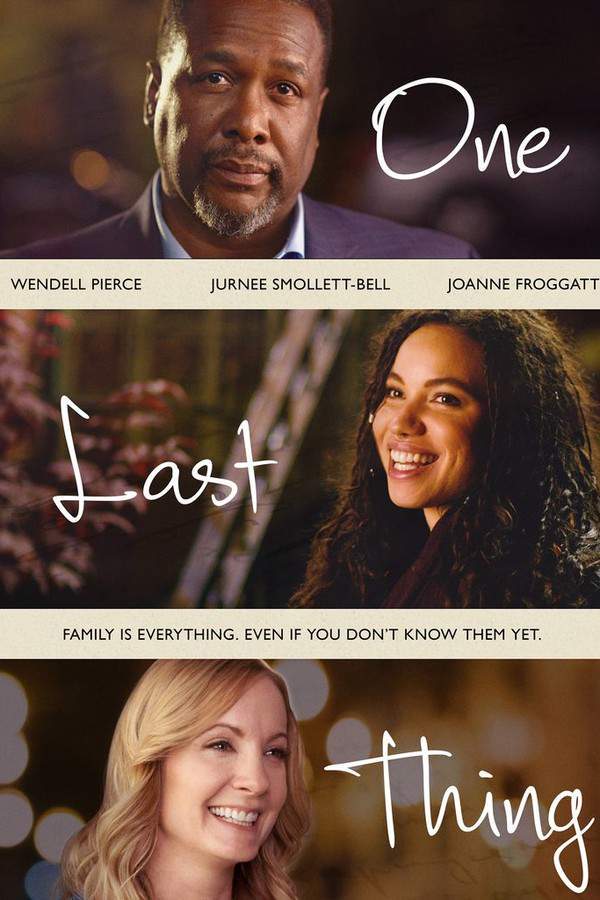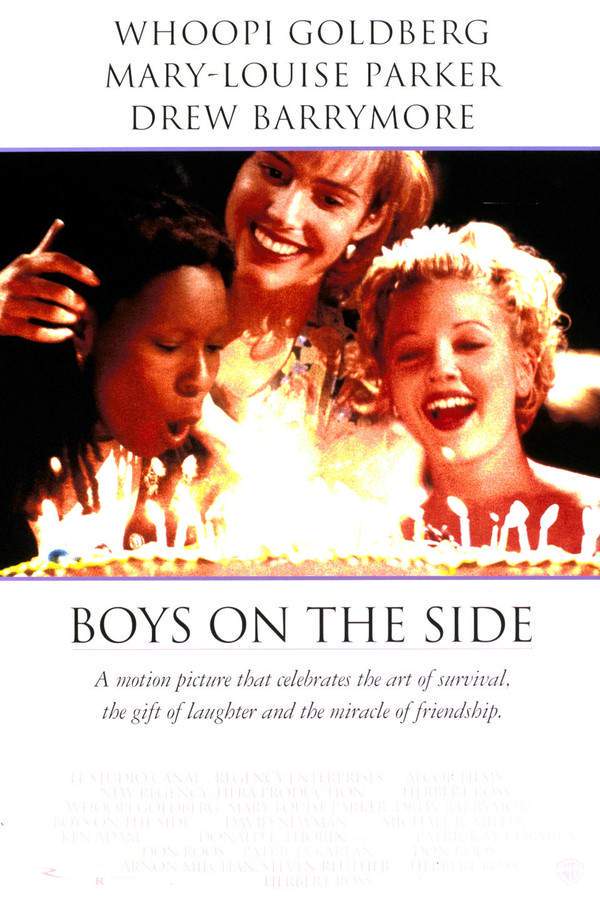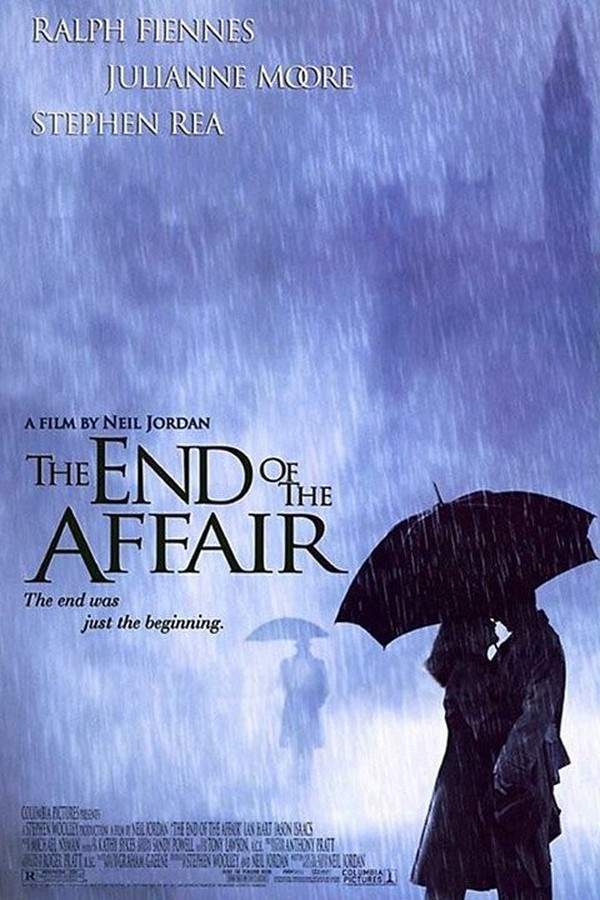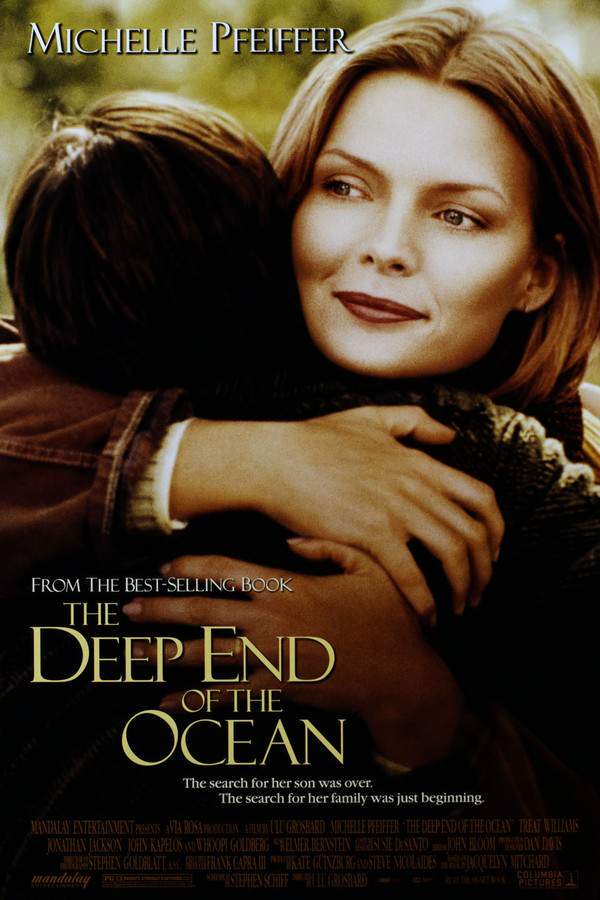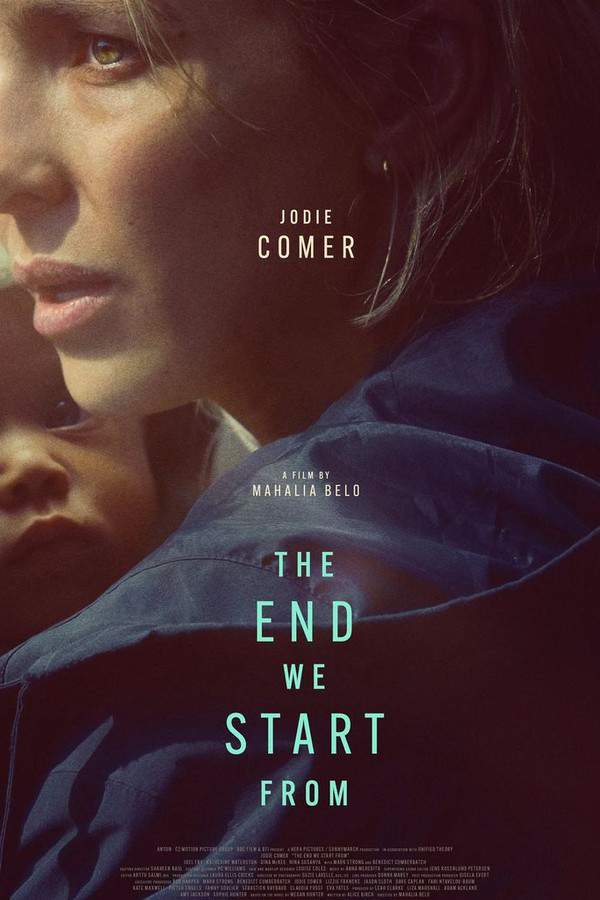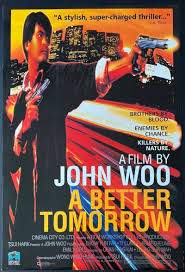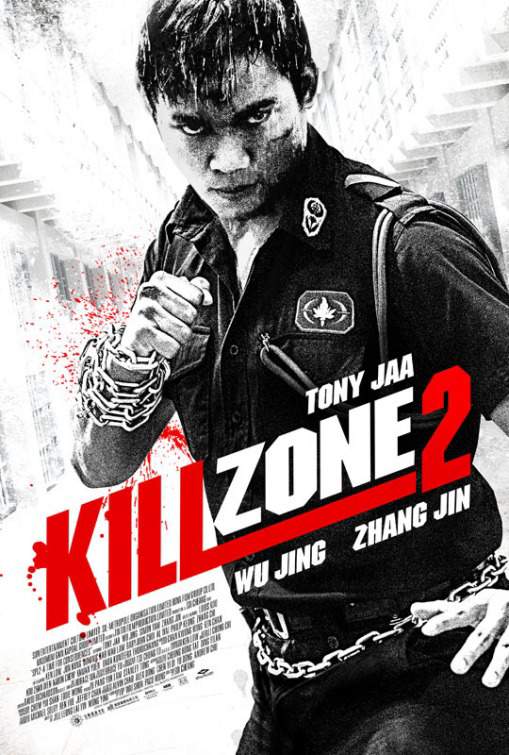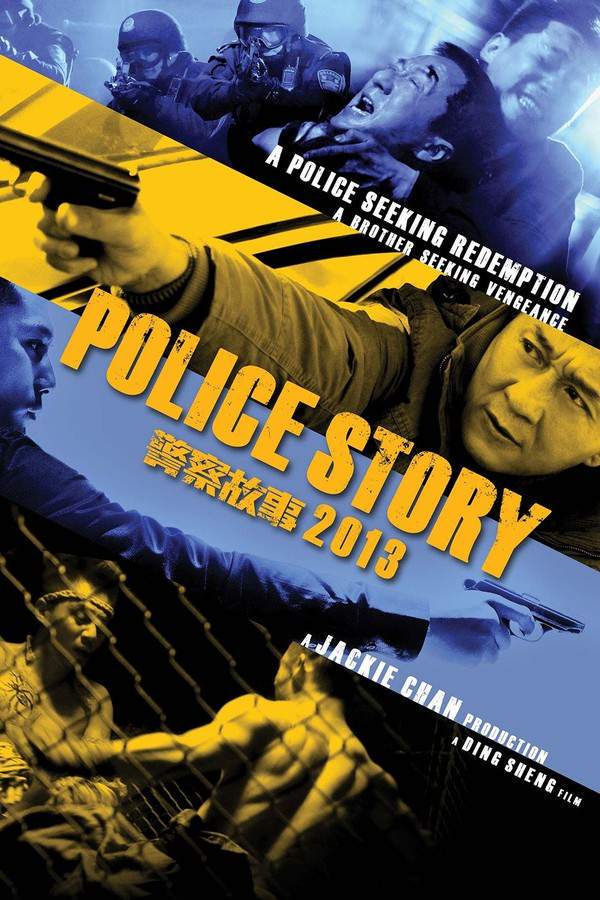
Prison on Fire II
Year: 1991
Runtime: 109 mins
Language: Cantonese
Director: Ringo Lam Ling-Tung
In a Hong Kong prison crowded with Mainland Chinese inmates, Ching longs to reunite with his young son, who is in an orphanage. He escapes to see the child, then surrenders. The vengeful chief of security, Zau, schemes to frame him for a Mainland gang, seriously endangering his chance at freedom.
Warning: spoilers below!
Haven’t seen Prison on Fire II yet? This summary contains major spoilers. Bookmark the page, watch the movie, and come back for the full breakdown. If you're ready, scroll on and relive the story!
Prison on Fire II (1991) – Full Plot Summary & Ending Explained
Read the complete plot breakdown of Prison on Fire II (1991), including all key story events, major twists, and the ending explained in detail. Discover what really happened—and what it all means.
Chung Tin Ching, Chow Yun-Fat, returns in a sequel that threads a deeper, if uneasy, fraternal bond with the ominous force known as Brother Dragon of the Black Rats. Driven by the ache of a father’s love, Ching learns that his son Leung has been placed in an orphanage after his grandmother’s death, and a social worker refuses to release him. This pushes Ching into a desperate plan to see his boy again, setting off a chain of risky moves that force him to test the thin line between restraint and rebellion.
Ching’s longing propels him to escape the prison once more, hoping to reach Leung, but the attempt lands him back behind bars after a chaotic chase. On the transport back to captivity, he endures brutal treatment at the hands of Officer Zau, a ruthless enforcer who will stop at nothing to break him. Elvis Tsui Kam-Kong embodies this hard-edged antagonist as the pressure tightens around Ching.
Back in the Mainland cell, Ching endures a brutal beating from the inmates who mistake him for a traitor to their cause, a misunderstanding that spirals into a calculus of violence. Skull, a fearsome presence among the prisoners, emerges from the shadows with a sharpened toothbrush and wounds Ching, a reminder that survival comes at a grim price. Woo Yiu-Chung gives life to Skull’s merciless edge as the tension of the prison yard boils over.
To seize a chance at freedom, Ching convinces Fireball, Bill Lung Biu, and other cellmates to spark a blaze that fuels an explosive escape attempt. The plan is reckless, but the promise of reunion with his son fuels the risk, and the fire becomes a turning point that forces a fragile alignment between two rival factions of prisoners—those from Hong Kong and those from the Mainland.
When the alarm sounds and the flames light up the prison, chaos spills into the yard. Ching shouts for help and darts toward the Hongkie group, sparking a tense clash that draws in more jail wardens who resort to water jet sprayers to restore order. Skull slips away to the canteen, hiding as the fight rages, while the escalating violence tests every rule of authority and loyalty.
The battle between factions peaks under the gaze of Officer Zau, who watches the chaos unfold without intervention, letting the flare of conflict escalate. The tension culminates in a brutal confrontation where Ching seizes the moment to turn the tables on Skull. The fight is raw and ferocious, and the moment freezes as Ching retrieves the sharpened toothbrush and braces for what could come next.
The tide of violence reaches a breaking point when Ching, facing Zau directly, is driven to defend himself in the most personal way. Zau closes in with a baton, but Ching’s reflexes and resolve tilt the encounter into a devastating blow: he uses the toothbrush to strike Zau’s left eye. The officer’s scream reverberates through the room as he collapses, and Ching slumps, exhausted, the weight of what he has done pressing down as the world goes dark.
When he awakens, it is in a hospital room. He takes up his son’s report card and studies the small marks and grades, a quiet reminder of how far he has drifted from the family he longs to protect. A cellmate’s comment about his son’s “handwriting not bad” is followed by a message that lands like a seed of hope: “Dad, don’t be naughty in prison, Don’t let me worry about you, remember…” and a line that lingers in the air, “Tolerate, Tolerate, Tolerate….”
Ching’s discharge marks a softening of the storm. He is brought back to his cell with the belief that a witness—an officer who can speak on his behalf—has secured him a higher standing, a quiet gesture that hints at fragile order returning to the otherwise volatile life behind bars.
A new chapter unfolds as a Prison Superintendent Law Shu-Kei makes his entrance, revealing a personal history with Ching from the orphanage when Ching first escaped. The encounter adds a layer of irony and fate to the appeal for compassion toward Ching’s son, and Ching privately asks the superintendent to keep an eye on Leung when the opportunity arises to visit the orphanage again. The delicate balance between mercy and discipline hangs in the air as the two men circle one another with careful words and cautious hope.
As the credits loom, an older, familiar voice punctuates the tension with a stark reminder of the past. An officer—the man known as Scarface—reappears, and the moment is underscored by a line that lingers in memory: > Long time no see. Roy Cheung Yiu-Yeung returns to that emblematic role, a wink to fans of the earlier film, while the scene settles into a softer tonal note. Ching mutters to himself about luck and the strange luck of survival, a quiet acknowledgment that the road to stability remains slippery and uncertain.
In the end, the film holds a cool, wary peace: Ching has carved a path through danger, forged a tenuous alliance with those who can help him keep his son safe, and earned the lingering respect of his Hongkonger cellmates who stand against the pressures from Mainland factions. The narrative trusts that endurance, but it never pretends that the prison’s walls can truly erase the ache of family or the pull of a father’s love. This is a story of resilience amid confinement, of choices that echo beyond the cell doors, and of a man whose greatest fight remains the one to keep his family whole.
Last Updated: October 09, 2025 at 15:01
Explore Movie Threads
Discover curated groups of movies connected by mood, themes, and story style. Browse collections built around emotion, atmosphere, and narrative focus to easily find films that match what you feel like watching right now.
Brutal prison survival dramas like Prison on Fire II
Gripping tales of men fighting for their lives and sanity behind bars.If you liked the high-tension survival and institutional violence of Prison on Fire II, explore these movies that capture a similar feeling of desperate endurance within harsh prison systems. These films share a dark, heavy tone and focus on the physical and psychological cost of staying alive.
Narrative Summary
The narrative follows a protagonist, often an ordinary person, thrust into a brutal penal system where they must navigate a violent social hierarchy and corrupt authority figures. The central conflict is a test of endurance, pitting the individual's will to survive against overwhelming systemic and physical threats, often culminating in a climactic confrontation for freedom or dignity.
Why These Movies?
These films are grouped together for their shared focus on the visceral, claustrophobic experience of incarceration. They deliver a high-intensity, dark viewing experience defined by themes of survival, male bonding under extreme duress, and the grim reality of institutional life.
Movies with bittersweet endings after heavy trials like Prison on Fire II
Stories where hard-won survival leaves deep emotional scars, not pure victory.For viewers who appreciated the costly, bittersweet conclusion of Prison on Fire II, this collection features stories where characters survive profound struggles but are forever changed. These movies balance heavy emotional weight with endings that are hopeful yet scarred, resonating with a feeling of wary resilience.
Narrative Summary
The narrative arc is defined by a protagonist facing a relentless series of trials that test their spirit and morality. The story builds to a resolution where the immediate danger has passed, but the victory is partial. The ending acknowledges the survival while emphasizing the profound personal loss, trauma, or sacrifice endured, leaving the character and audience with a complex mix of relief and melancholy.
Why These Movies?
These films are united by their specific emotional journey: a heavy, intense experience culminates in a conclusion that is neither purely happy nor bleak. The shared vibe is one of earned but compromised survival, where the emotional weight of the journey indelibly marks the outcome.
Unlock the Full Story of Prison on Fire II
Don't stop at just watching — explore Prison on Fire II in full detail. From the complete plot summary and scene-by-scene timeline to character breakdowns, thematic analysis, and a deep dive into the ending — every page helps you truly understand what Prison on Fire II is all about. Plus, discover what's next after the movie.
Prison on Fire II Timeline
Track the full timeline of Prison on Fire II with every major event arranged chronologically. Perfect for decoding non-linear storytelling, flashbacks, or parallel narratives with a clear scene-by-scene breakdown.

Characters, Settings & Themes in Prison on Fire II
Discover the characters, locations, and core themes that shape Prison on Fire II. Get insights into symbolic elements, setting significance, and deeper narrative meaning — ideal for thematic analysis and movie breakdowns.

Prison on Fire II Spoiler-Free Summary
Get a quick, spoiler-free overview of Prison on Fire II that covers the main plot points and key details without revealing any major twists or spoilers. Perfect for those who want to know what to expect before diving in.

More About Prison on Fire II
Visit What's After the Movie to explore more about Prison on Fire II: box office results, cast and crew info, production details, post-credit scenes, and external links — all in one place for movie fans and researchers.

Similar Movies to Prison on Fire II
Discover movies like Prison on Fire II that share similar genres, themes, and storytelling elements. Whether you’re drawn to the atmosphere, character arcs, or plot structure, these curated recommendations will help you explore more films you’ll love.
Explore More About Movie Prison on Fire II
Prison on Fire II (1991) Scene-by-Scene Movie Timeline
Prison on Fire II (1991) Movie Characters, Themes & Settings
Prison on Fire II (1991) Spoiler-Free Summary & Key Flow
Movies Like Prison on Fire II – Similar Titles You’ll Enjoy
A Better Tomorrow (1991) Complete Plot Breakdown
Kill Zone 2 (2016) Film Overview & Timeline
Police Story: Lockdown (2015) Story Summary & Characters
With Prisoners (2017) Movie Recap & Themes
Island of Fire (1990) Full Movie Breakdown
Dragon in Jail (1990) Detailed Story Recap
Long Arm of the Law II (1987) Detailed Story Recap
Prison on Fire (1987) Detailed Story Recap
City on Fire (1987) Complete Plot Breakdown
Long Arm of the Law III (1989) Plot Summary & Ending Explained
Penitentiary II (1982) Full Movie Breakdown
Police Story 2 (1988) Complete Plot Breakdown
A Better Tomorrow II (1987) Spoiler-Packed Plot Recap
Police Story 2 (1988) Film Overview & Timeline
Turning Point (2009) Story Summary & Characters

